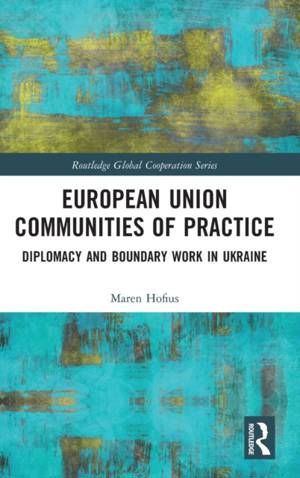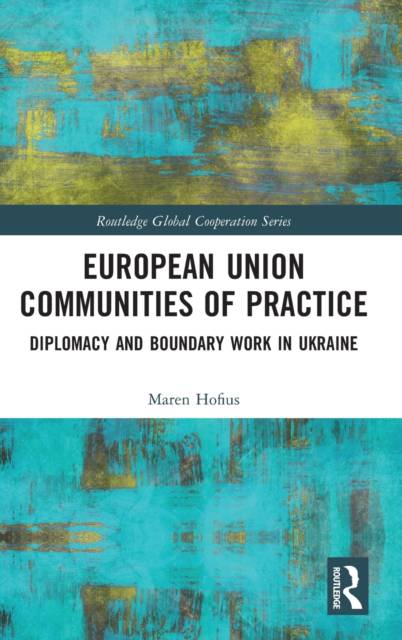
- Retrait gratuit dans votre magasin Club
- 7.000.000 titres dans notre catalogue
- Payer en toute sécurité
- Toujours un magasin près de chez vous
- Retrait gratuit dans votre magasin Club
- 7.000.000 titres dans notre catalogue
- Payer en toute sécurité
- Toujours un magasin près de chez vous
Description
This book provides a practice-based analysis of European Union (EU) diplomacy and community-building.
Unlike studies focusing on how EU community-building proceeds centrally in Brussels, this book turns to EU diplomacy in its bordering state of Ukraine. At a time when the EU's internal cohesion is being put to the test, this book provides novel insights into how feelings of belonging are produced amongst its members in the absence of a homogenous 'we'. Transcending the traditional dichotomy between macro-structures and micro-processes of interaction, the book demonstrates that the EU's large-scale community depends for its existence on practical instantiations of community-building in distinct 'communities of practice'. Using the case of an EU diplomatic 'community of practice' in Kyiv, Ukraine, takes these questions to the EU's margins, highlighting that the boundaries of community are key sites in which community materialises. The in-depth case study identifies diplomats' 'boundary work' as the constitutive rule that makes the local 'community of practice' cohere and create feelings of belonging to the large-scale polity of the EU.
This book will be of interest to researchers of European studies, as well as to those working on global cooperation and international relations more broadly.
Spécifications
Parties prenantes
- Auteur(s) :
- Editeur:
Contenu
- Nombre de pages :
- 190
- Langue:
- Anglais
- Collection :
Caractéristiques
- EAN:
- 9781032043654
- Date de parution :
- 22-12-22
- Format:
- Livre relié
- Format numérique:
- Genaaid
- Dimensions :
- 156 mm x 234 mm
- Poids :
- 467 g







